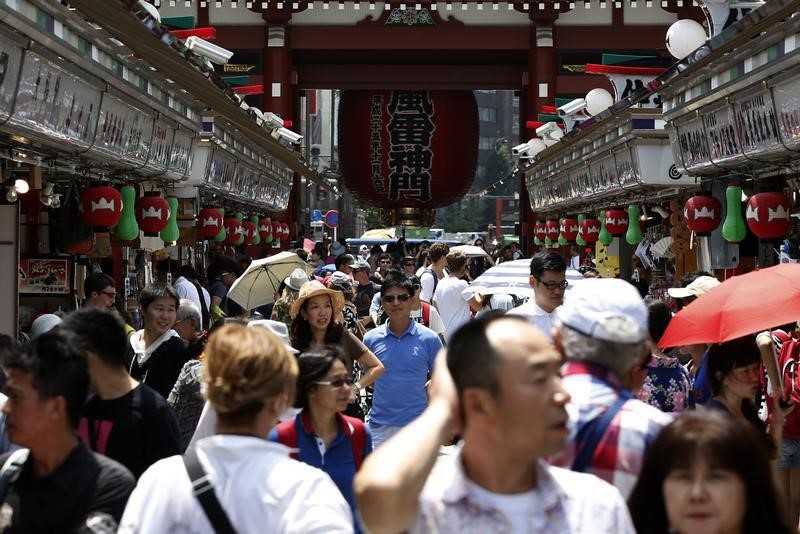TOKYO (Reuters) - Wages of Japanese workers rose in August from a year earlier, reversing from the previous month's decline, in a sign of a gradual pick-up in workers' income amid a tightening labour market.
Wages rose in both nominal and inflation-adjusted real terms, labour ministry data showed on Friday.
The data is likely to ease some worry over the sustainability of a recent improvement in consumer spending.
Still, wage growth may not be strong enough to dispel questions over the central bank's assertions that a tightening labour market will eventually lead to higher wages, which will boost economic activity and inflation.
Wage earners' nominal cash earnings rose an annual 0.9 percent in the year to August, reversing from the prior month's revised 0.6 percent decline and the fastest gain since July 2016, the data showed.
Reflecting a 0.8 percent rise in consumer prices, however, inflation-adjusted real wages rose a meagre 0.1 percent, up for the first time in eight months.
Many Japanese companies remain hesitant to spend their record cash piles on raising wages, in part because they are unable to pass on costs to their customers who are accustomed to nearly two decades of mostly falling prices.
Special payments -- which include summer bonuses -- jumped 6.1 percent in August from a year ago, the biggest gain since March 2016.
Regular pay, which determines base wages, rose 0.4 percent in the year to August, rising for a fifth straight month.
Overtime pay, a barometer of strength in corporate activity, rose 1.5 percent year-on-year in August, up two months in a row.

